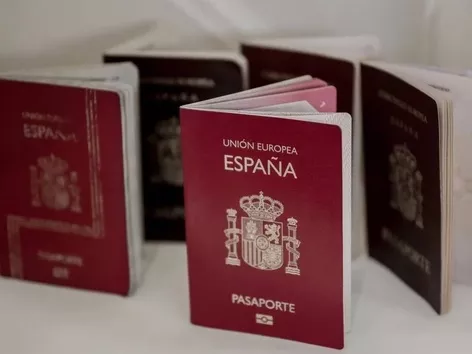Dual citizenship in 2024: the list of countries that recognize and prohibit dual citizenship and what are the features

Dual citizenship is widely popular among foreigners all over the world. Currently, 49% of countries recognize bipatris. Find out what countries these are, as well as which countries' citizens do not have the right to obtain dual citizenship
Investors, expats and entrepreneurs are increasingly thinking about obtaining a second passport, because additional citizenship has many advantages: tax benefits, simplified conditions for obtaining a visa, moving to a country with better social conditions, a stable political system, etc.
Dual citizenship is allowed in 49% of countries in the world, including the USA, Caribbean countries, Turkey, etc. However, many governments do not recognize their residents' second passports. That is why, before choosing a country for obtaining a second passport, you should check whether your country of origin allows it
We have collected a list of states that recognize and prohibit dual citizenship and current features in this article.
What is dual citizenship?
Dual citizenship is when a person has passports of two countries and both states at the official level recognize the rights and obligations of a person in each of them.
Expats with dual citizenship can choose which country to serve in the military, and their children are entitled to two passports at birth.
The legislation of some countries, such as Portugal or Italy, is more lenient and allows dual citizenship, but some states, such as Austria, prohibit dual citizenship for their residents.
Advantages and disadvantages of dual citizenship
A person with dual citizenship receives rights in both states, but it is impossible to use them at the same time. It is allowed to use benefits only in the country of residence.
Advantages include the ability to live and travel in countries without a visa, simplified conditions for doing business, the ability to receive diplomatic assistance from the embassies of both countries when staying in a third country, access to a better health care system, prospects for children of expats.
Among the disadvantages are a complicated registration process, paying taxes in both countries at the same time, the need to undergo military service in two states.
What is the difference between dual and second citizenship, read in this article.
Countries with permitted dual citizenship
49% of all countries allow dual citizenship, but some of them allow being bipatriate only under certain conditions. For example, Argentina only has dual citizenship agreements with Italy and Spain. Expats from other countries who wish to apply for Argentine citizenship must surrender their original passports.
European countries that allow dual citizenship
Albania, Belgium, Cyprus, Czech Republic, Denmark, Finland, France, Greece, Hungary, Iceland, Ireland, Italy, Kosovo, Latvia, Luxembourg, Malta, Norway, Portugal, Romania, Serbia, Slovenia, Spain, Sweden, Switzerland, Great Britain.
Asian countries that allow dual citizenship
Armenia, Bangladesh, Israel, Lebanon, Pakistan, Philippines, Syria, Turkey.
African countries that allow dual citizenship
Egypt, Liberia, Malawi, Morocco, Nigeria, South Africa, Zambia.
Countries in South, Central America and the Caribbean that allow dual citizenship
Antigua and Barbuda, Barbados, Belize, Bolivia, Brazil, Chile, Costa Rica, Dominica, Grenada, Jamaica, Mexico, Panama, Peru, Saint Kitts and Nevis, Saint Lucia, Vanuatu, Venezuela
North American countries that allow dual citizenship
Canada, USA.
Australia and New Zealand also allow dual citizenship.
Countries that allow dual citizenship, but under certain conditions
- Argentina allows dual citizenship only with Italy and Spain. Foreign nationals must renounce their primary citizenship before obtaining Argentine citizenship.
- Bulgaria – ethnic Bulgarians have the right to have multiple nationalities without having to give up their Bulgarian passport. However, those who naturalize in the country must renounce other nationalities when they become citizens.
- Croatia – ethnic Croats who have acquired citizenship by birth or descent may retain other nationalities. Expats undergoing the naturalization process must renounce their previous citizenship.
- El Salvador allows dual citizenship, but only for those who acquired Salvadoran citizenship by birth. Naturalized citizens cannot hold multiple citizenships.
- Germany - The German cabinet has just given the go-ahead to allow Germans to hold dual citizenship, and plans to ease requirements for expats (foreigners are predicted not to have to renounce their citizenship of their country of origin when naturalising).
- Russia officially allows dual citizenship only if there is an agreement on the recognition of dual citizenship between Russia and another state. It has such a document with only two countries: Tajikistan and Turkmenistan.
- Slovakia allows dual citizenship only for those who received a passport through birth or marriage.
- South Korea – Expats living in South Korea who obtain citizenship – including through the country's Immigrant Investor Program – can retain their birth citizenship.
The immigration procedure, a list of documents and useful tips for obtaining citizenship in these countries on the Visit World portal.
Countries without dual citizenship
There are many countries that do not recognize dual citizenship. These states are also not limited to certain continents, but are found all over the world.
European countries that do not recognize dual citizenship
Andorra, Austria, Estonia, Lithuania, Montenegro, the Netherlands, Poland, Ukraine, Belarus, Monaco, San Marino.
Asian countries that do not recognize dual citizenship
Azerbaijan, Bahrain, China, India, Indonesia, Japan, Malaysia, Singapore, Thailand, United Arab Emirates, Kyrgyzstan, Bhutan, Kazakhstan, Iran, Kuwait, Macau, Micronesia, Laos, Marshall Islands, Mongolia, North Korea, Qatar, Myanmar, Oman, Nepal, Papua New Guinea, Saudi Arabia, Tajikistan, Turkmenistan, Tonga, Uzbekistan, Vietnam, Yemen.
African countries that do not recognize dual citizenship
Botswana, Djibouti, Tanzania, Congo, Ethiopia, Mozambique, Swaziland.
Countries in South, Central America and the Caribbean that do not allow dual citizenship
Cuba, Haiti, Bahamas, Solomon Islands.
Therefore, when planning to obtain a second citizenship, it is important to study in detail the legislation of the chosen country and the country of origin, because the procedure is quite complicated and has many peculiarities.
In which countries it is easiest to obtain citizenship in 2024, read the link. We will remind you that we talked about the popular ways of obtaining citizenship and the country with the most simplified procedure here.
Ihor Usyk - head of Visit World's legal department
The procedure for obtaining citizenship is quite complex and has many peculiarities, therefore, to simplify the processing of a passport, consult a migration specialist. My colleagues, qualified specialists with legal education, will help you avoid unpleasant situations when traveling abroad.
Products from Visit World for a comfortable trip:
Travel guide for 200 countries;
Legal advice from a local specialist on visa and migration issues;
Travel insurance around the world (please select the country of interest and citizenship to receive services);
Medical insurance all over the world.
Recommended articles
3 min
Residence permit
Moving to Nicaragua in 2024: visa, citizenship and other important details
Nicaragua is a country in Central America that offers foreigners quite interesting programs for obtaining a second residence permit. Although it is one of the poorest countries in the region, it is endowed with unlimited natural resources and golden sandy beaches. Learn more about the specifics of moving to Nicaragua in 2024
01 lip. 2024
More details2 min
Investment
Caribbean Citizenship by Investment in 2024: Comparison of Programs
Obtaining citizenship through investment programs provides a privilege - alternative citizenship and the opportunity to settle in another country. Learn about Caribbean Citizenship by Investment, which Caribbean countries offer citizenship by investment in 2024 and what are their advantages
25 kwi. 2024
More details2 min
Popular
Who are the Global Citizens and what is their specialty?
On a world map, you can see clearly defined colored borders of different countries and territories. But in reality, our world is one, and humanity is not defined by borders or nationalities. Find out more about who the Global Citizens are and what values they share
23 cze. 2024
More details1 min
Expats
Spain has extended the Law of Democratic Memory, also known as the "Ley de Nietos," which allows descendants of Spaniards expelled during Francisco Franco's regime to obtain Spanish citizenship. Find out who has the right to issue a passport and what the procedure is
16 lip. 2024
More detailsAll materials and articles are owned by VisitWorld.Today and are protected by international intellectual property regulations. When using materials, approval from VisitWorld.Today is required.
